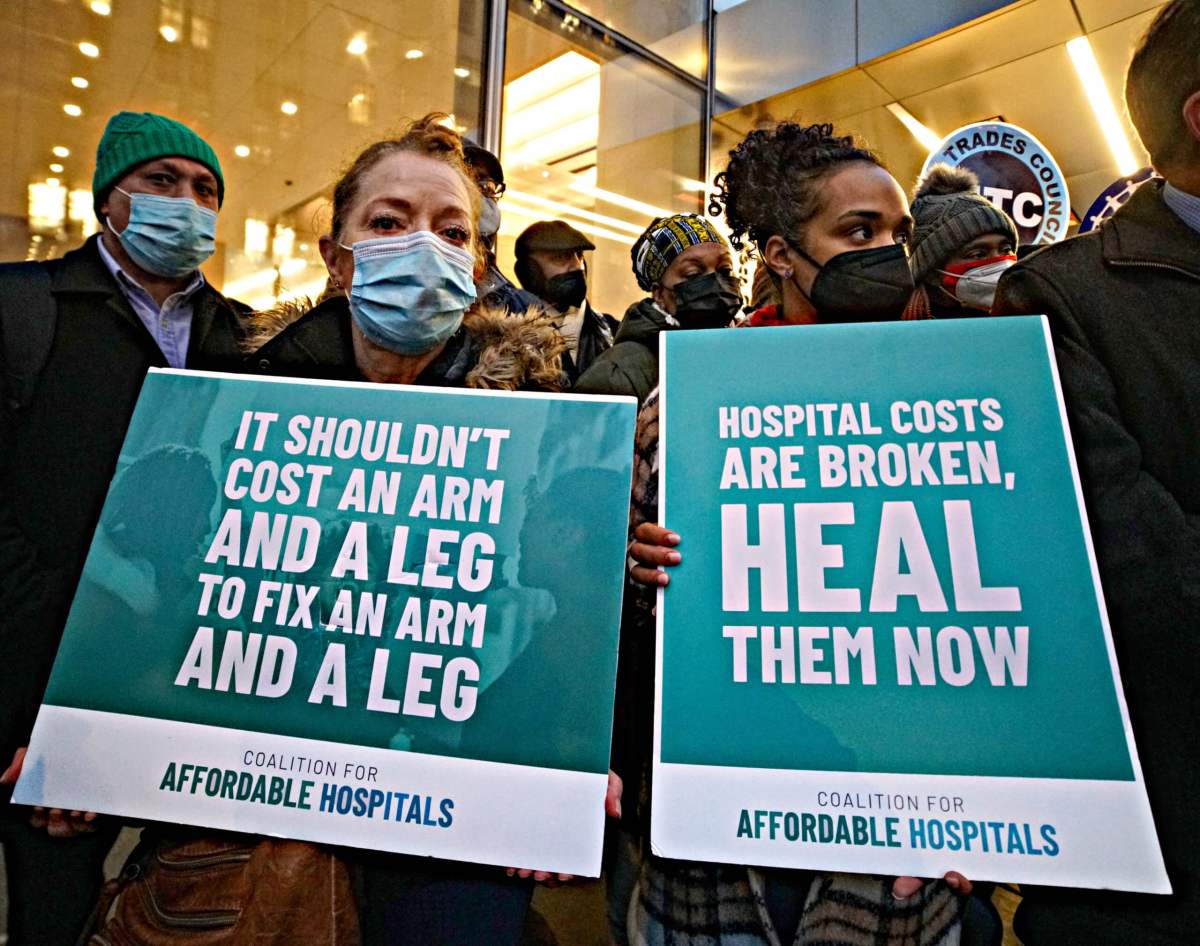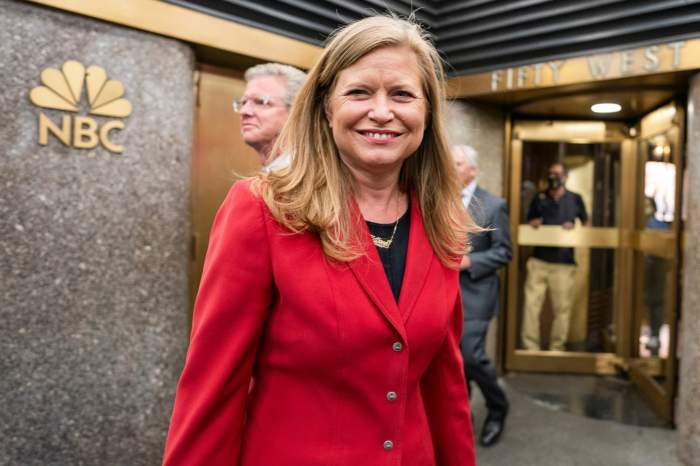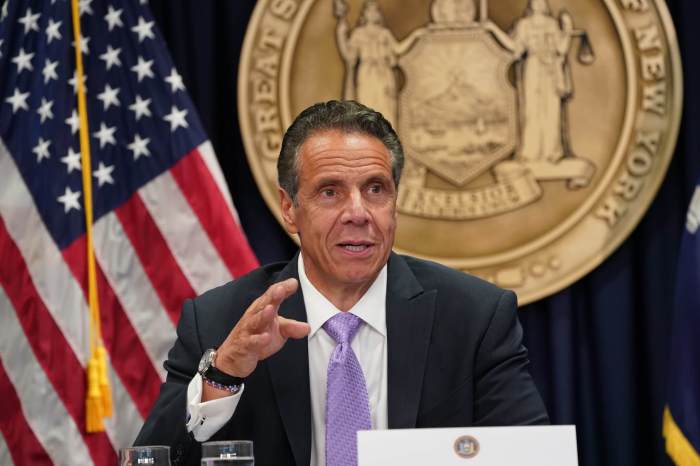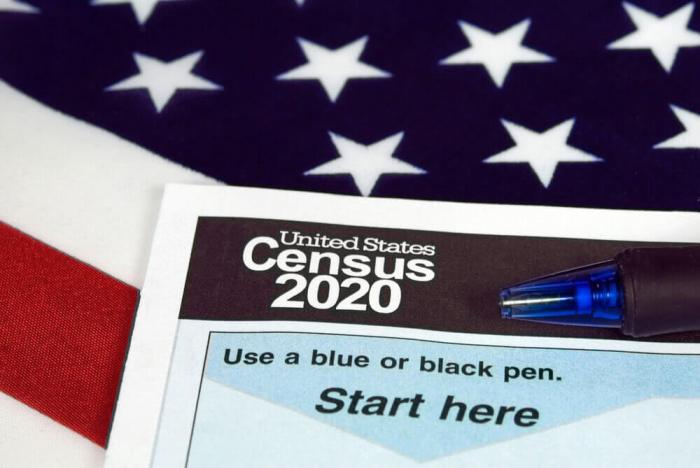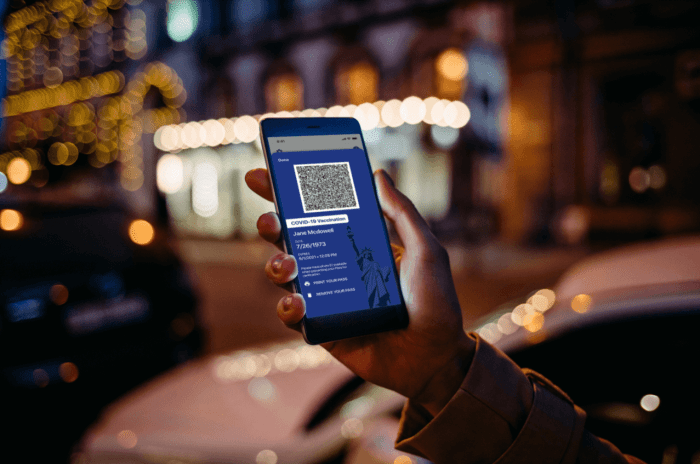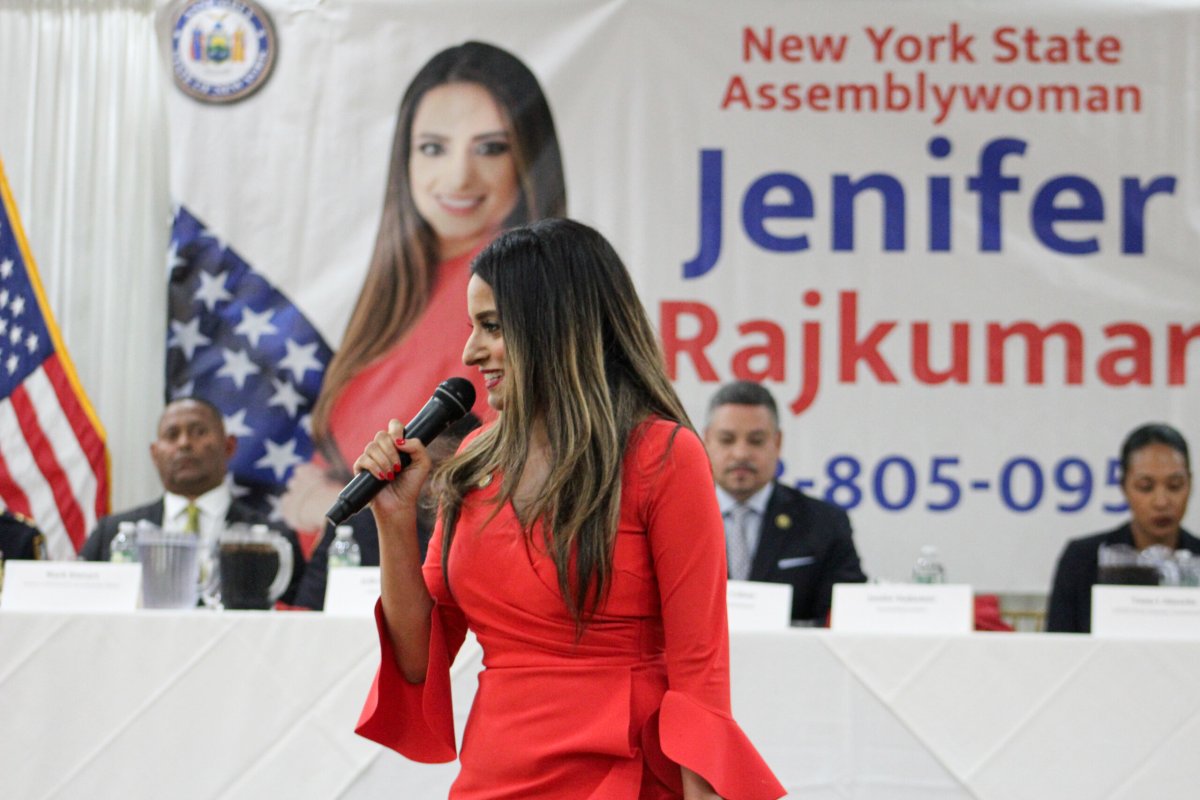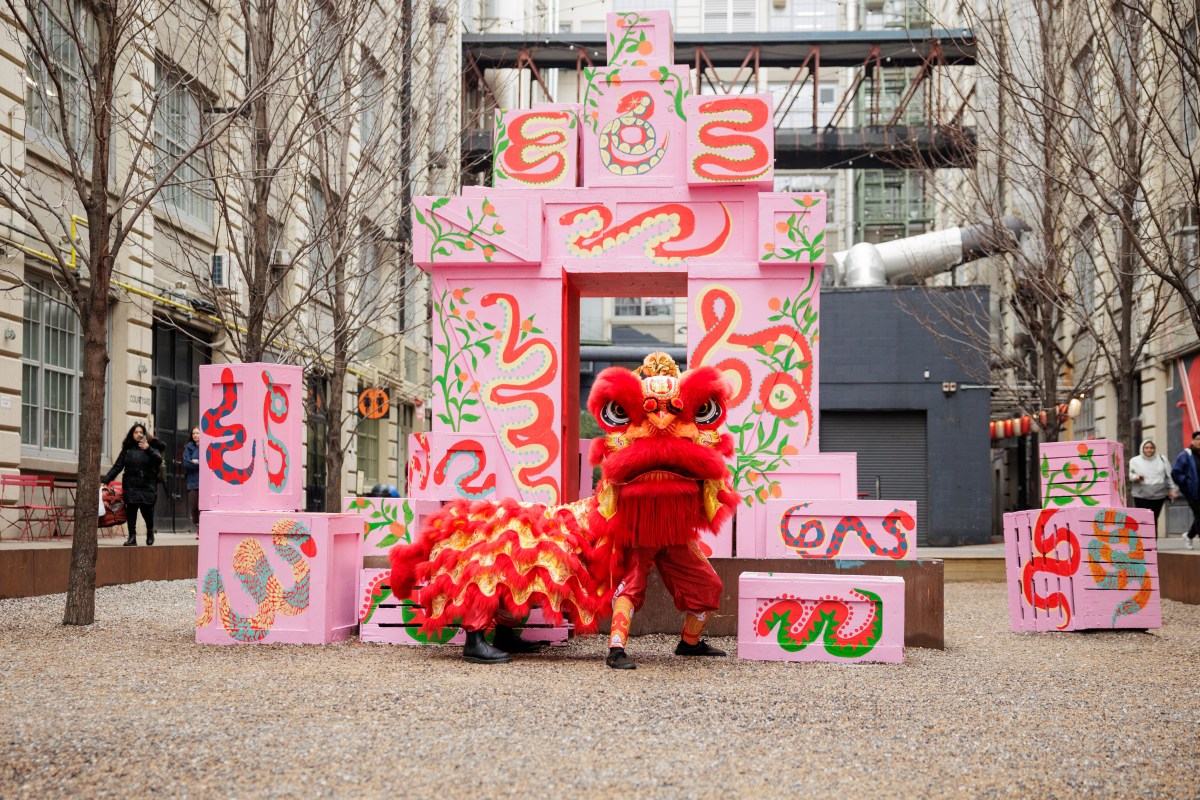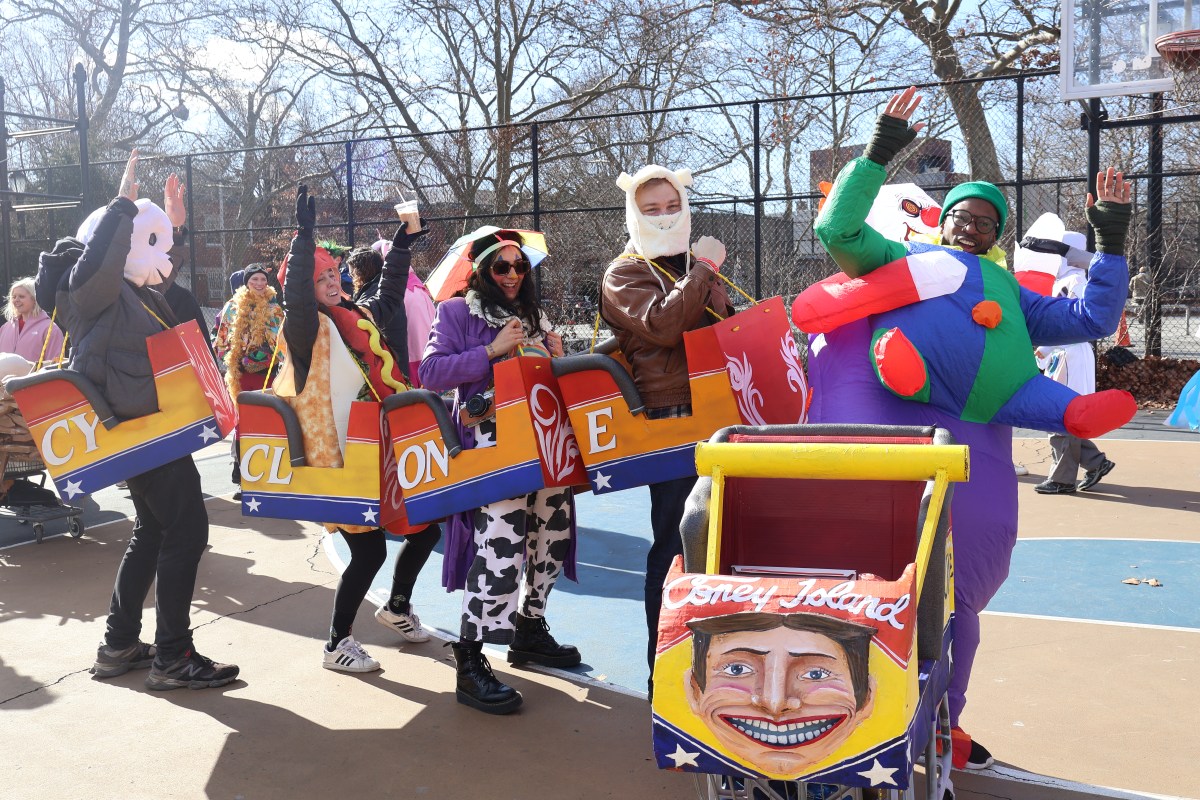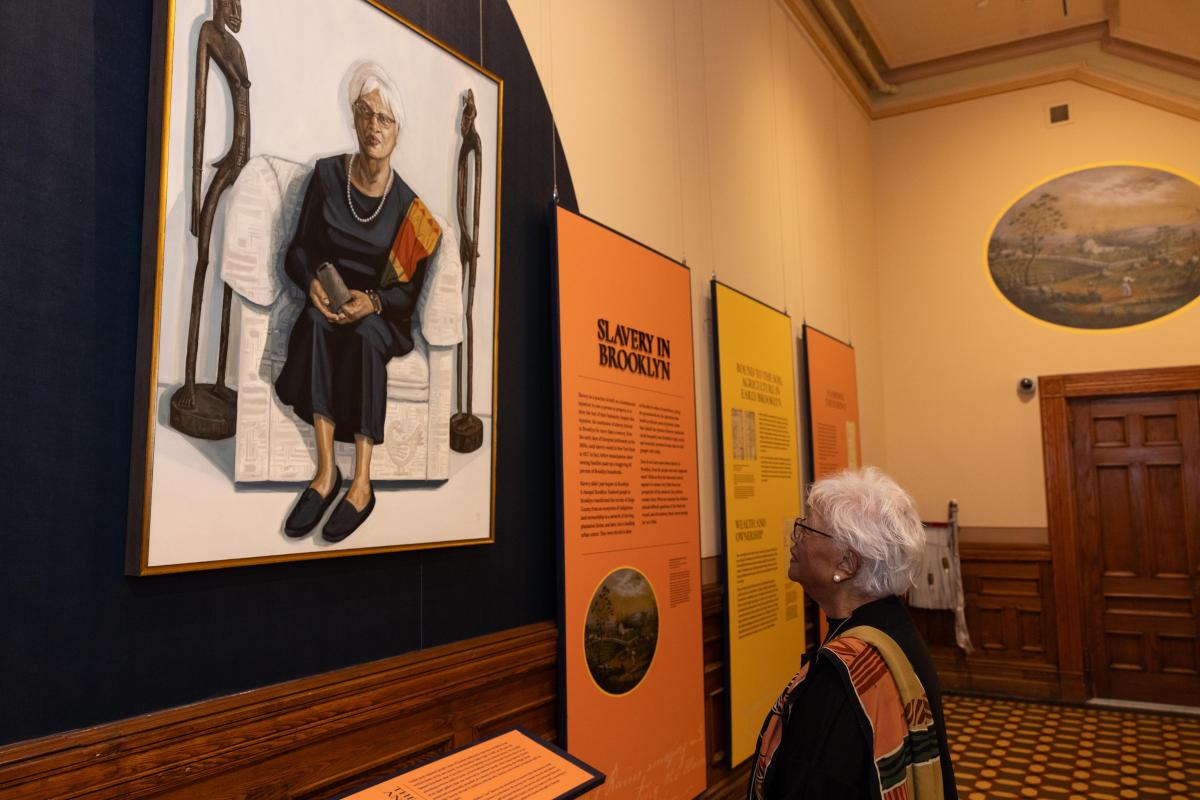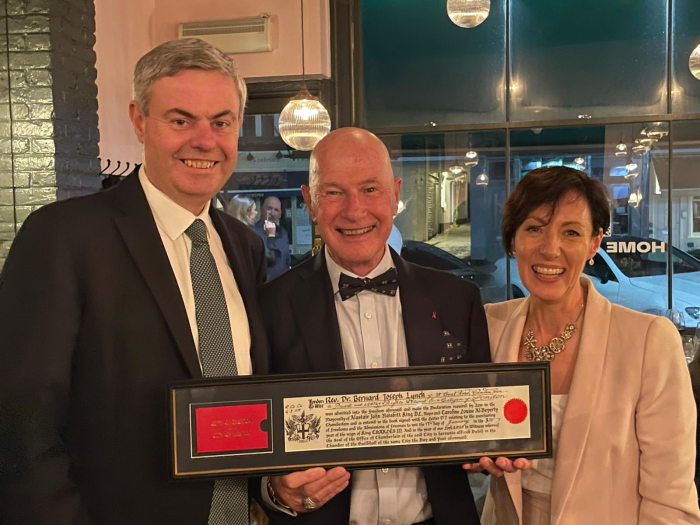A new report released by the Black, Puerto Rican, Hispanic & Asian Legislative Caucus (NY BPHA) and the Campaign for New York Health indicates medical debt and lack of access to affordable healthcare harms Black, Brown, Asian and other ethnically diverse communities.
During a press conference in Albany on May 4, lawmakers with the NY BPHA along with members of the New York Nurses Association and other advocacy groups, speakers highlighted the dire need for universal healthcare coverage for all New Yorkers, especially following the health crisis caused by the COVID-19 pandemic.
“Before the pandemic, the conversation was ‘this costs too much money,’” said Assemblymember Catalina Cruz. “Then we went through a pandemic where thousands of our neighbors got sick or died. And they got sick or died because many of them couldn’t afford preventative healthcare. We had people who had to choose over the last year ‘do I go get help because I possibly have COVID, or do I pay my rent?’ It makes absolutely no sense, because if a pandemic has not shown us that healthcare is the most important item in a budget, then I don’t know what else we can do.”
The report released Wednesday indicates that 46% of insured adults reported difficulty paying their out-of-pocket costs and 27% report difficulty affording their deductible. 58% of both Black and Hispanic adults report delaying or skipping at least one type of medical care in the past year due to cost, compared to 49% of white adults.
“The clock is ticking on a lot of people who are desperate for the healthcare that can only be made possible by the New York Health Act,” said State Senator Jessica Ramos. “I actually met a childcare provider who outwardly told me that she has not been able to get a mammogram done in the past ten years because she can’t afford to. How many more lives must we lose, how many more loved ones must we lose in order to get this through the very thick heads of many of [my] colleagues and many of our unions who are still refusing to sign on to the New York Health Act?”
Speakers repeatedly remarked on how the findings of the report indicated what they had already suspected; that healthcare access is a critical racial equity issue and how systemic solutions like a universal, single-payer health plan will significantly improve healthcare access and health outcomes for all.
“All these things are intersectional,” said Assemblymember Jessica González-Rojas. “Reproductive justice is a health justice issue. Health justice is an immigrant justice issue. Health justice is a racial justice issue. For some reason, the medical system picks us apart. So somehow our uterus is separate from the rest of our body. Somehow our hearing – because I also wear a hearing aid – is separate from the rest of our body. Somehow our teeth are separate. Everything is broken up and commodified in ways that are deeply unjust. We are whole human beings and we need care that is universal.”
To read the full report visit the Campaign for New York Health website.



